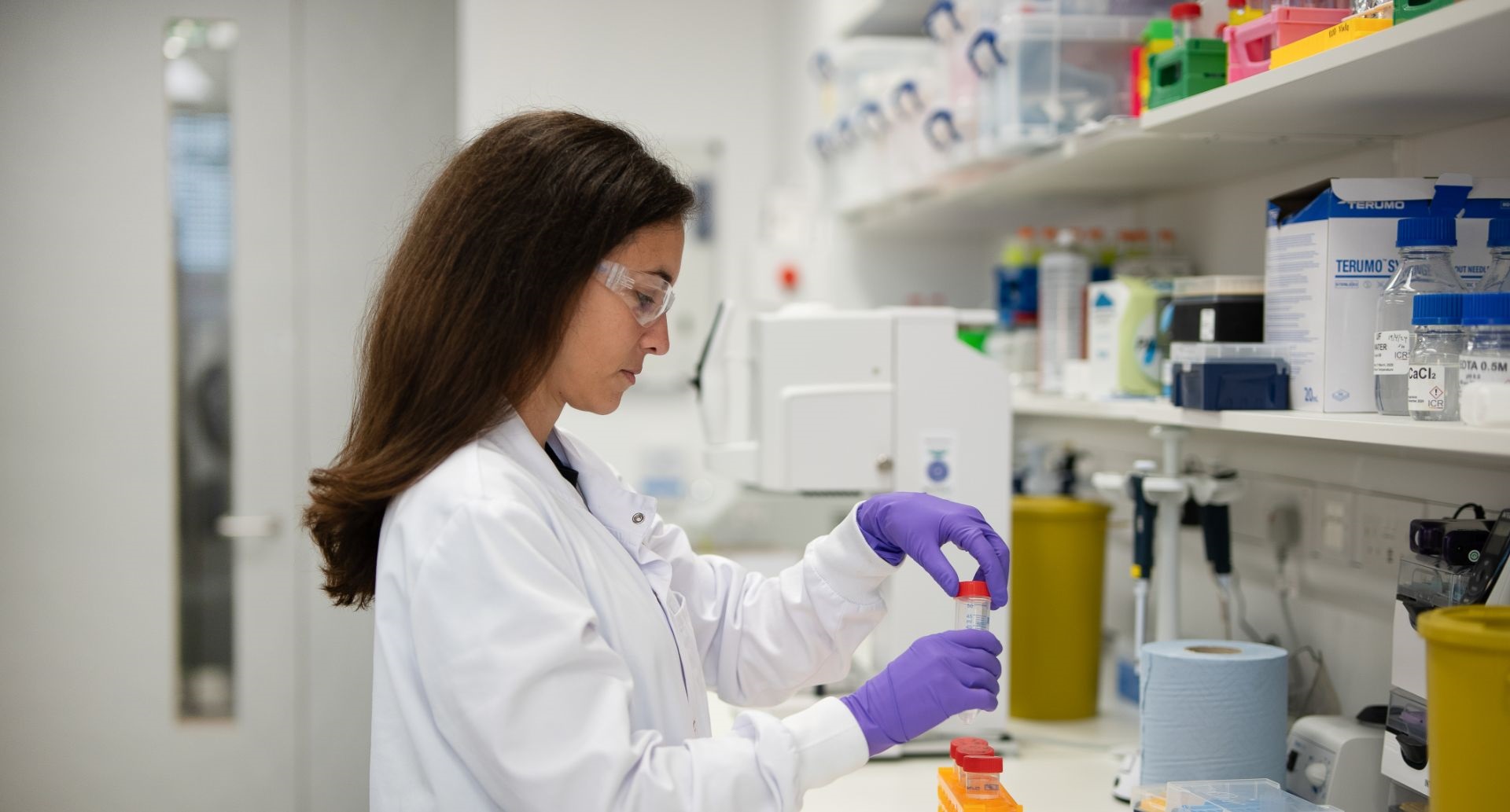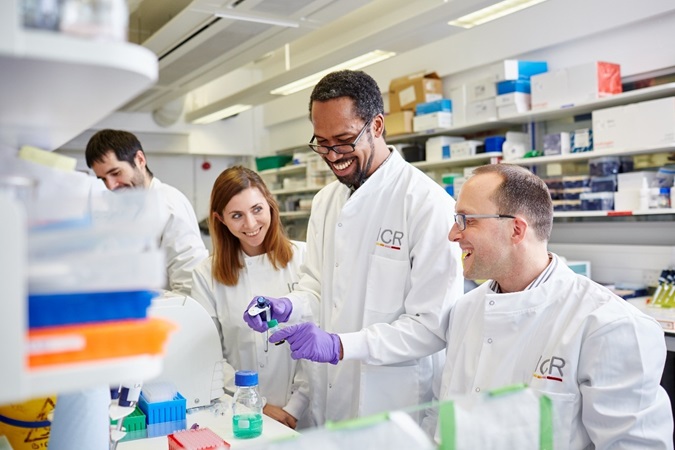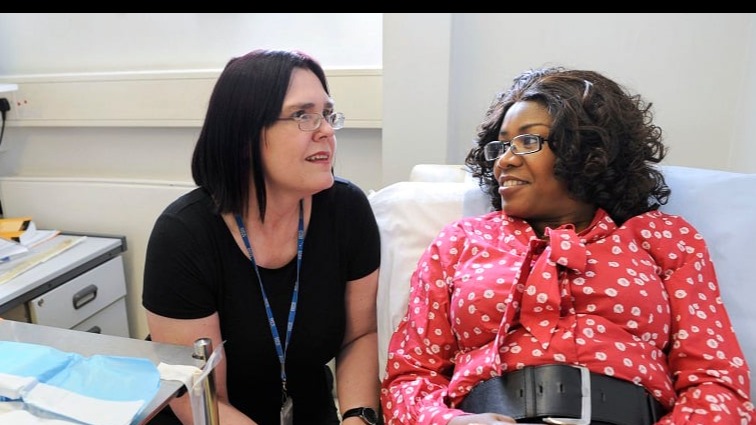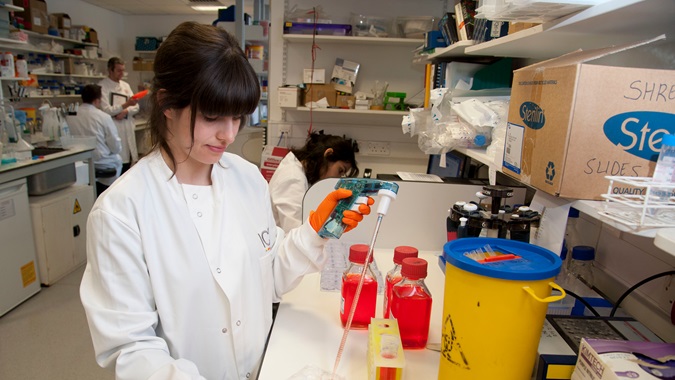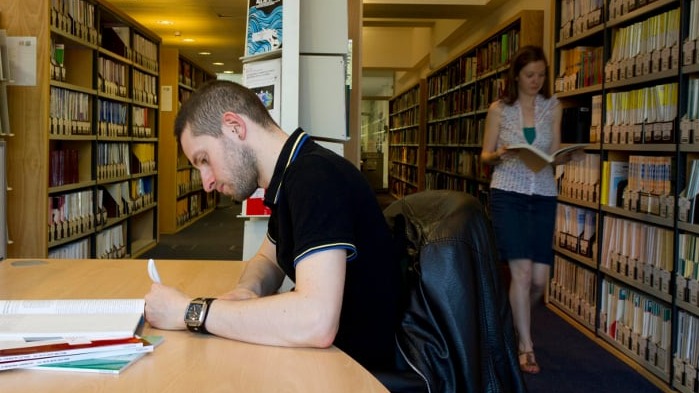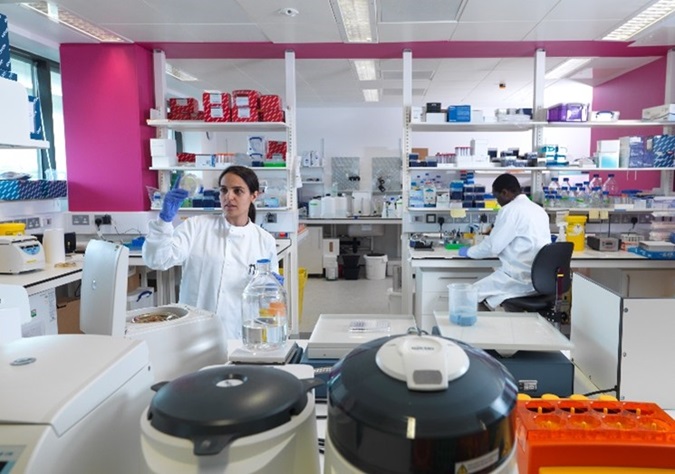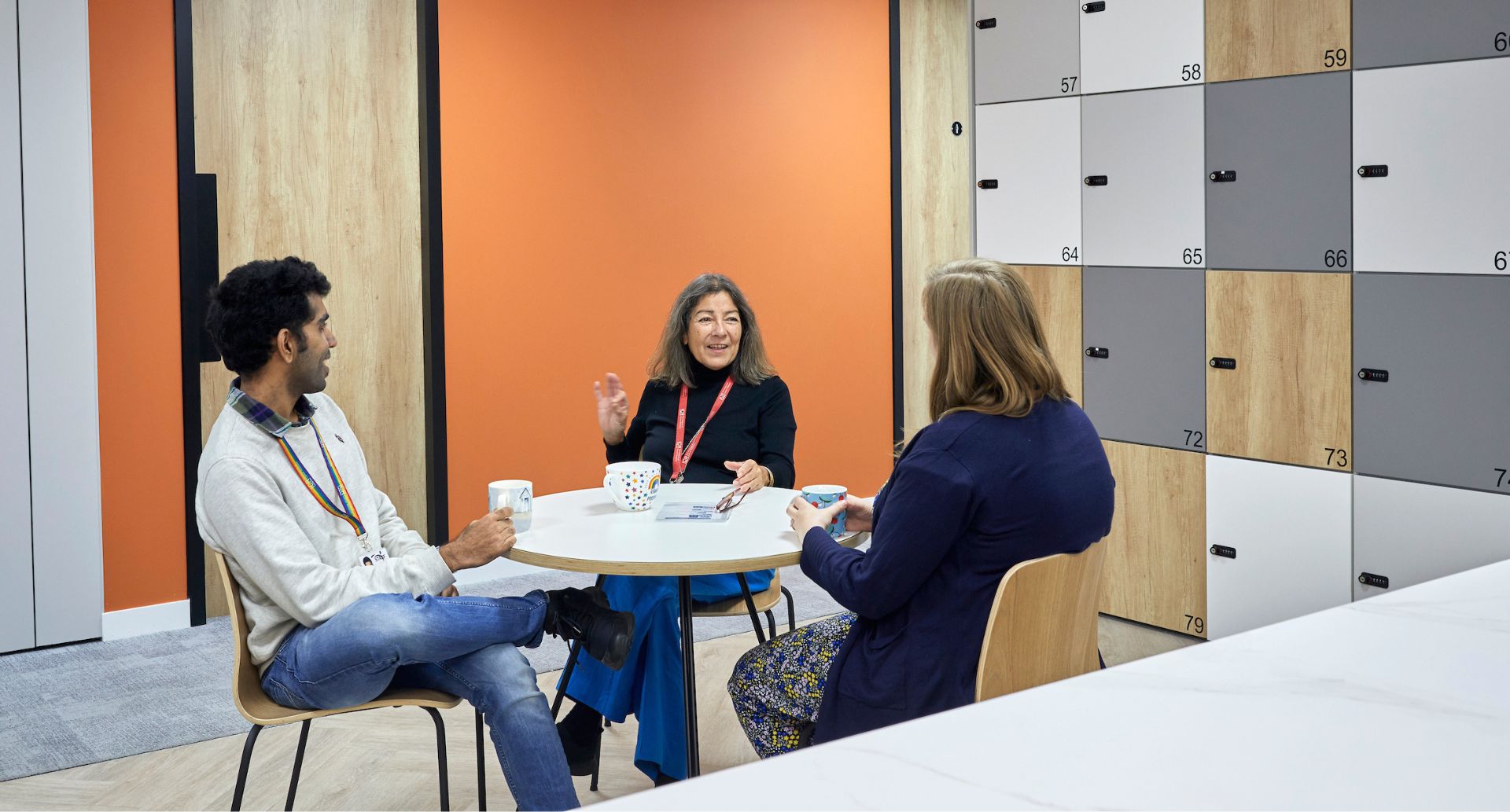Dr Becky Cook is Head of Research Support at The Institute of Cancer Research. She oversees our large strategic grant applications and is supporting the ICR's next submission to the Research Excellence Framework (REF), which is the definitive government evaluation of the quality and impact of research at UK universities.
Talk us through your typical day
I manage a small team that provides advice and support to researchers applying for external grant funding from funders including the Research Councils, Wellcome Trust, Cancer Research UK, the European Commission and the US National Institute of Health.
Personally, I coordinate and develop large strategic grant applications such as institutional PhD programme applications and the ICR's MRC Confidence in Concept award.
In addition, I meet and talk with researchers to provide advice on grant applications. With my Director, Dr Barbara Pittam, and other colleagues, I work on research policy areas and that often means drafting papers for ICR's management committees.
Another significant area of work for me is supporting and providing guidance on the ICR's next REF submission.
How does your work contribute to our mission?
Researchers need funding to deliver their research. The high level and detailed advice my team and I provide helps support the ICR in securing external grant funding. The REF informs the allocation of research funding from Research England to ICR so is also very important.
Moreover, I help to secure funding to train the next generation of ICR researchers – another important ICR aim – by working on applications for PhD programmes, including the successful Wellcome Clinical PhD programme application and the ICR's MRC iCASE Programme.
Can you give us any examples of where you see the ICR's values in your work?
Supporting grant applications embodies many of the ICR values – in particular working together and leading innovation. A grant application involves input from various people, researchers and other corporate teams, to develop new and exciting ideas to describe in an application so that it provides a compelling case for funding.
What are you most proud of?
I have worked on and contributed to various successful grant applications which makes me very proud. There are two that stand out because of their strategic importance and status; the Regius Professorship and Queen's Anniversary Prize. I feel very proud to know that I made vital contributions to these two significant recognitions of the ICR’s excellent and impactful research.
Who do you collaborate with at the ICR and elsewhere?
I work with researchers across the ICR, as it is their research and ideas I'm usually writing about. For student applications, I work with other teams in Academic Services as well as our Learning and Development team in HR. I also work closely with Research Finance on grant support as they provide the costings for grant applications and I collaborate with the team overseeing the Biomedical Research Centre at The Royal Marsden and the ICR.
What makes you want to work for the ICR?
I previously carried out research myself, having undertaken my PhD at the ICR, and although I decided that being in the lab wasn’t the career for me, working at the ICR in a research support role really appealed. The ICR makes a real difference to cancer patients' lives and I get lots of satisfaction from contributing to that work in some small way. Also the ICR is great place to work as it is a very supportive environment, with lots of committed and interesting people.
